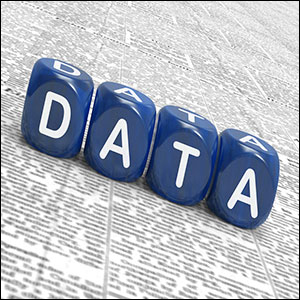
“A rose by any other name would smell as sweet” is a popular maxim from William Shakespeare’s play Romeo and Juliet, in which Juliet argues that it does not matter that Romeo is from her family’s adversary house of Montague.
If a rose smells like a rose no matter what you call it, can the same be said about Stewards? Not about the smell :), but about what we call these people. A Steward, by definition, is someone who takes care of something for someone else. The people in the organization take care of the organization’s data for the organization. A Steward is not an “owner”. A Steward is a caretaker. It’s all in the data.
A businessperson in the organization who defines what data is needed by their part of the organization and puts business definition to that data so that it can be consumed by the organization, and checks to see if that data already exists before defining it yet another way… is a Data Definition Steward. The Data Definition Steward takes care of the business definition of that data for the organization.
A person in the organization who produces data, and intentionally knows and follows the quality rules and standards associated with producing that data… is a Data Production Steward. The Data Production Stewards take care of producing quality data for the organization.
The easiest to mention is the person who uses the data. A person who uses data and intentionally knows and follows the rules and standards associated with using that data are Data Usage Stewards. The Data Usage Steward takes care of how the data is used by the organization.
The non-invasive approach to data governance understands that becoming a Data Steward is not something that people can opt-into or opt-out of. A person is a Data Steward if they have a relationship to the data (as a definer, producer, and/or user of data) and they are held formally accountable for that relationship and the actions they take with data. You need to know who those people are. The complexity of “everybody is a data steward” must be addressed.
Some people consider these people to be Operational Data Stewards, or they refer to them as Data Definers, Producers, and Users. In reality, people typically take more than one of these actions. They define and use the data. They produce and use the data. Again—A steward by any other name… These are the Operational Data Stewards that are most concerned with doing their respective jobs and have interest (but less so) in doing things that benefit the organization as a whole.
There is a second level of stewardship, often regarded as being tactical, that must be discussed. Tactical Data Stewards are people that take care of, or who are accountable for, subject matters or domains of data that cross organizational boundaries. The Registrar is the Tactical Data Steward for Student data. The Bursar is the Tactical Data Steward for Financial Aid data. Examples can be found in your organization. The second level of stewardship focuses on the interests of the entire organization and the quality and confidence people have with that data.
The Tactical Data Steward often goes by the name (disguise?) of being the Data Owner. When organizations use the term “Owner”, this sends a message that conflicts with the messaging of becoming a Data Steward. To remind you, the Data Steward is formally accountable for taking care of the data for the organization. Using the term “Owner” implies exactly the opposite of what stewardship embraces. Ownership declares, “This is mine. I own it. I make the decisions about it.” (Read more in my article To Own or Not to Own Data.) In the non-invasive approach to data governance, the Tactical Data Steward is referred to as the Data Domain (Subject Matter) Steward or the Data Subject Matter Expert (DSME).
The Tactical Steward can have authority but doesn’t not always have the authority, or level of accountability, to make decisions for the organization. In the non-invasive approach, the Strategic Data Governance Council is positioned to make decisions that get escalated from the Tactical to the Strategic level of the organization.
The success of a maintainable Data Governance program depends on the strength of the Tactical Data Stewards. A Data Domain Steward takes care of making certain that the right actions are being taken with the data that is included in that domain. This can lead to uncomfortable situations where authority and enforcement is unclear. I define data governance as “the execution and enforcement of authority over the definition, production, and usage of data”. Rules must be followed. Data must be governed. Stewardship, especially at the tactical level, is an important part of successful data governance.
Consider the following personal traits when you recognize your Data Domain Stewards:
- Vision of what the future of that domain of data (as an asset) looks like
- Looking for ways to improve the status quo for the domain
- Ability to motivate the organization
- Set an example of data-related behavior
- Team players
- Diplomatic
- Personal interest, intuitive ability, and communication skills to facilitate issue resolution to achieve a “win-win.”
I started this column by quoting Shakespeare and I turned it into a discussion about Data Stewards. A Steward by any other name is still a Steward. As far as Data Stewards are concerned, they can be a definer of data, a producer of data, and/or a user of data. If they are held formally accountable for their actions, these people are Data Stewards.
Some Data Stewards play a role in governing data more broadly and across business functions. These people are Domain Stewards. A Data Steward by any other name is still a Data Steward. It’s all in the data.
